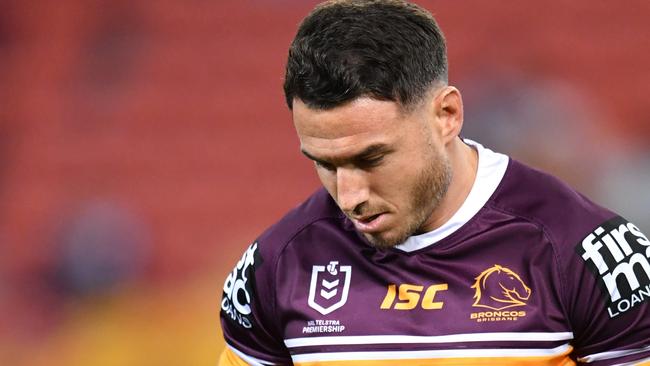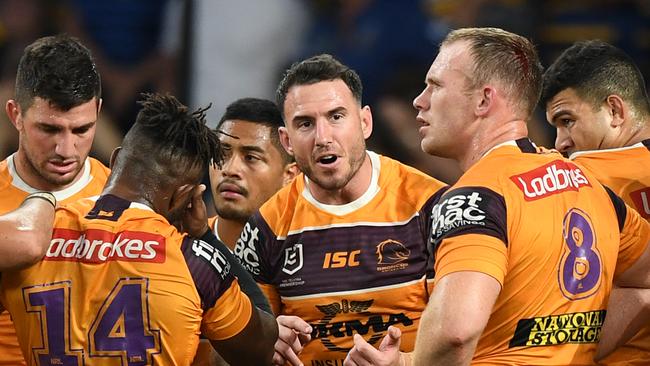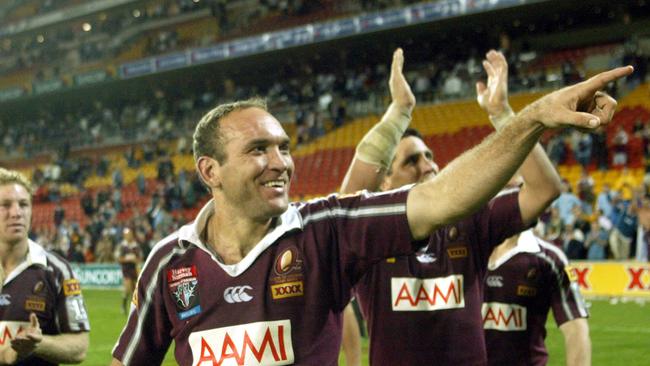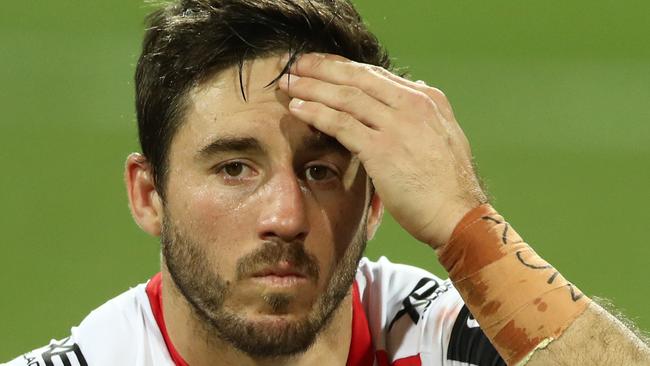When criticism crosses the line tragedy can follow
The Brisbane captain’s call for fans to go easy on under-performing Broncos might seem self-serving but it makes sense when you consider players’ wellbeing, writes MIKE COLMAN.

Sport
Don't miss out on the headlines from Sport. Followed categories will be added to My News.
Darius Boyd has copped plenty of criticism for his on-field leadership this season but on Monday he led from the front on behalf of all NRL players.
In shining a spotlight on the online pressure endured by players — especially the young and inexperienced — Boyd made a very important statement.
Some might think that Boyd was being melodramatic or trying to water down criticism of the Broncos’ meek exit from the finals when he warned of the potential for social media abuse to lead to tragedy, but clinical studies show that he was spot on.
Stream every match of the 2019 NRL Telstra Premiership Finals Series before the Grand Final Live & On-Demand on KAYO SPORTS. Get your 14 day free trial and start streaming instantly >

A study conducted last year at the University of Pennsylvania with results published in the US Journal of Social and Clinical Psychology, established a clear link between the use of social media and negative effects on wellbeing, primarily depression and loneliness.
A joint UK study at Swansea, Oxford and Birmingham universities published in the Journal of Medical internet Research found that people aged under 25 who are victims of cyber-bullying are more than twice as likely to self-harm and enact suicidal behaviour.
And if the barrage of abuse that some players receive on social media isn’t cyber-bullying, what is it? Constructive criticism?
Gorden Tallis once said that he had no problem with fans in the stands calling him names.
“They can say anything they like about me,” he said. “I reckon I’ve heard it all and I cop it sweet. It’s all part of the game. As long as they don’t throw things, spit on me or involve my family I don’t have a problem.”
But Tallis retired in 2006, two years before the introduction of Twitter and four years before Instagram. The catcalls and abuse he copped from the stands largely ended when he walked off the field because very few of his critics would dare say anything to his face.

These days the abuse follows the players home via their phone or tablet. It continues 24 hours a day and there is no limit to what can be said; it can be as personal and hurtful as the troll’s sick mind allows.
Wayne Bennett has a simple solution to the problem.
“They shouldn’t read it,” he says of players who are affected by what is written to and about them, but it isn’t that easy.
Bennett, like Tallis, is from another era; a time when the height of rugby league criticism in the electronic media was Rex Mossop’s Controversy Corner every Sunday morning.
Now, thanks to social media, the players are immersed in it. They are obsessed by it and, in many cases tortured by it.
Ben Hunt admitted last season that he sought professional help when the personal criticism he received after a poor start to his big-money move to the Dragons began to take a toll on his mental health.
“I had to delete Instagram,” he said. “I never used to care but I found myself scrolling through the comments reading everything people were saying about me.”

MORE NEWS
Burgess: NRL is trial by media
Melbourne Storm snare “next Cooper Cronk”
The mental health issues that saw Titans halfback Ash Taylor take time away from the game were also reportedly exacerbated by constant social media abuse.
It is that sort of pressure that Darius Boyd does not want to see his young teammates have to endure.
The NRL disbanded its Under 20s competition in 2017 after five players ended their own lives.
As then-ARL Commission chairman John Grant said at the time: “The fact is we take young men in our game away from their homes too early, we put them into intensive competitions, we ask too much of them and quite frankly we’ve had some disastrous outcomes.”
With 10 of the 17 players in the Broncos squad that lost to Parramatta aged 24 or younger, Darius Boyd’s warning is worth taking very, very seriously.


